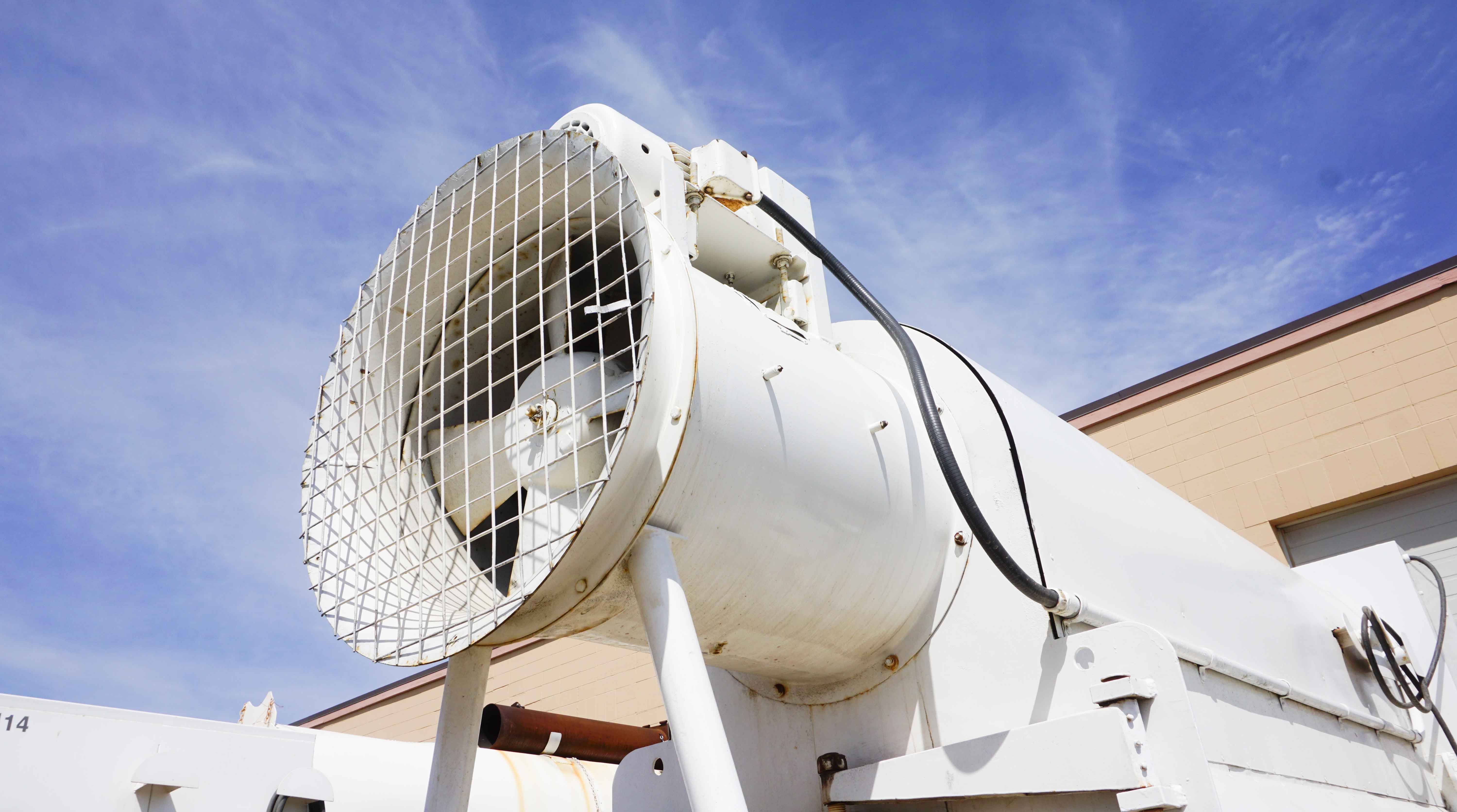When you or someone on your site sprays a coating containing zinc near your heater, you need to take precautions for yourself and your equipment. Overspray that gets into the heater’s air outlet will cause serious and expensive damage.
The problem starts when you shut off the heater and detach the ductwork from its air outlet. Then you start spraying, and zinc particles in the overspray drift into the outlet and land on the heater’s tube sheet.
The tube sheet is made of stainless steel. As long as the tube sheet is still warm, the zinc sticks.
When the heater is turned on again, the zinc becomes molten and penetrates the stainless steel intergranularly, inducing steel embrittlement. This causes the tube sheet joint to crack, which can result in heat exchange failure.
When you have a cracked tube sheet, you will see one or more of these indicators (in order of severity of damage):
- The heater’s exhaust smoke turns white.
- Black smoke comes out of the burner when it is shut off.
- Extreme case—flames mixed with combustion products shoot out of the air outlet.
I see zinc contamination in 90% of the pre-owned heaters I examine. I have also seen heaters in the field that were unrepairable because contamination had been going on for too long. In fact, it’s one of the reasons Desert Air cube heaters are made so that heat exchangers can be replaced in the field.
Prevention
Prevention couldn’t be more straightforward: keep the air outlet ductwork attached, and divert it so that it can’t pick up any overspray.
For further precaution, inspect your heater whenever you move it to a new task, after it has cooled. And inspect it annually at a minimum.
The mystery of zinc
Most painters wouldn’t make the link from zinc overspray to damaged heaters.
It’s not obvious until you hear about the phenomenon of liquid metal embrittlement (LME) and liquid metal cracking (LMC) induced by molten zinc on stainless steel. This is something that welders are very conscious of when they are working with galvanized (i.e. zinc-coated) stainless steel.
But now YOU know.
